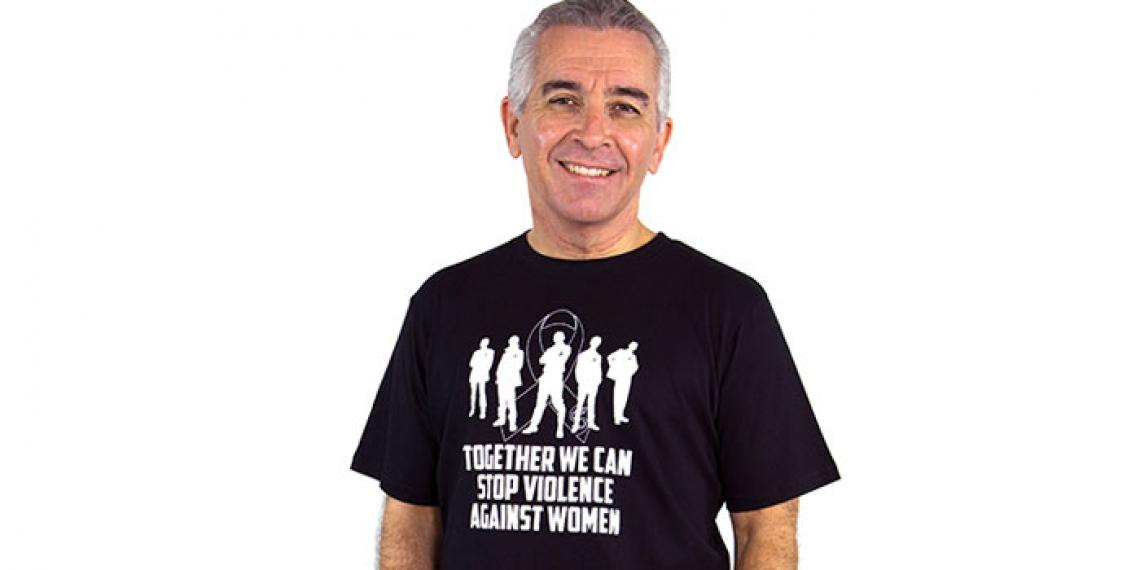You are here
Saying no to violence

The people next door were fighting again. Shouting, screaming, sounded like someone had thrown something. I checked—the kids weren’t playing on the road, they were inside. Panicked, I phoned the police. They never turned up.
The folk next door were the number three family who’d lived in that house that year and number two who’d had loud fights. Not just arguing, but serious stuff. Ringing the cops was the first time I’d done anything.
Eventually I asked my pastor about what to do. ‘How about taking some Christmas presents over for the kids, a ball or small toys or something?’ It was great advice—a simple, non-judgemental way of being helpful and showing them some love. I didn’t take it. I hid. ‘Someone else will help,’ I thought.
A few months later I interviewed Vic Tamati. He’s the guy off the ‘It’s Not OK’ domestic violence ads from a few years ago. The one that talks about getting love tattooed on his knuckles, because he was told the beatings were love and that way he could share the ‘love’.
For some reason, I’d thought that was just a story and not real. But Vic showed me the tattoos and how real it was. He talked to me about the beatings he’d had as a kid; being beaten with a machete, a belt, a Bible. About not believing in God, in part because his parents told him that they were showing him God’s love by beating him senseless and putting him down.
Vic also told me about the beatings he’d handed out to his wife and kids. He told me about hanging his baby daughter up by her hands because she was sick and wouldn’t stop crying. About the day he beat his eight-year-old with a platform shoe because she didn’t want to go to school. And about the day she took the blame for that beating.
Vic is a big guy; you can tell he was once a scary guy. But the voice of that eight-year-old changed him. He turned his life around. Vic stopped the violence in his own life and now travels the country working to break the cycle of violence in so many Kiwi homes. He’s an inspiration in the face of an issue that seems so overwhelming.
New Zealand has the second highest rate of child murder in the developed world and one of the highest rates of violence in our homes. Every year, 1500 adults are arrested for child abuse. Police are called to about 200 domestic violence situations every day—or on average one every seven minutes.
I’ve interviewed the former Chief Family Court Judge, Women’s Refuge workers, international experts, politicians, and a Child Youth and Family worker about stopping these appalling numbers. But Vic was by far the most moving and influential, because his story is about an individual who turned things around. It shows us change is possible for anyone and reminds us that violent people aren’t monsters; they’re people like us—people who can change. Vic’s story is of someone standing up and saying ‘no’ to violence. That’s what we need to grasp, not just on White Ribbon Day, but every day.
Henare O’Keefe said it right in Nigel Latta’s documentary on child abuse this year. He said, ‘You fix the home, you fix the community.’ The horrific violence in our society is not going to be ended by politicians, police, judges or NGOs. They’re important, but things will only change when we commit to change.
Every person who doesn’t resort to violence in their home is making a difference to the future of people’s lives. Every person who encourages someone to seek help is making a difference. Every person who demonstrates God’s love and peace in their home and to their neighbours is making a difference. Every person who doesn’t hide or pass responsibility to someone else, like I did.
White Ribbon Day is on 25 November. Go to www.whiteribbon.org.nz
by Robin Raymond (c) 'War Cry' magazine, 15 November 2014, pp3.
You can read 'War Cry' at your nearest Salvation Army church or centre, or subscribe through Salvationist Resources.